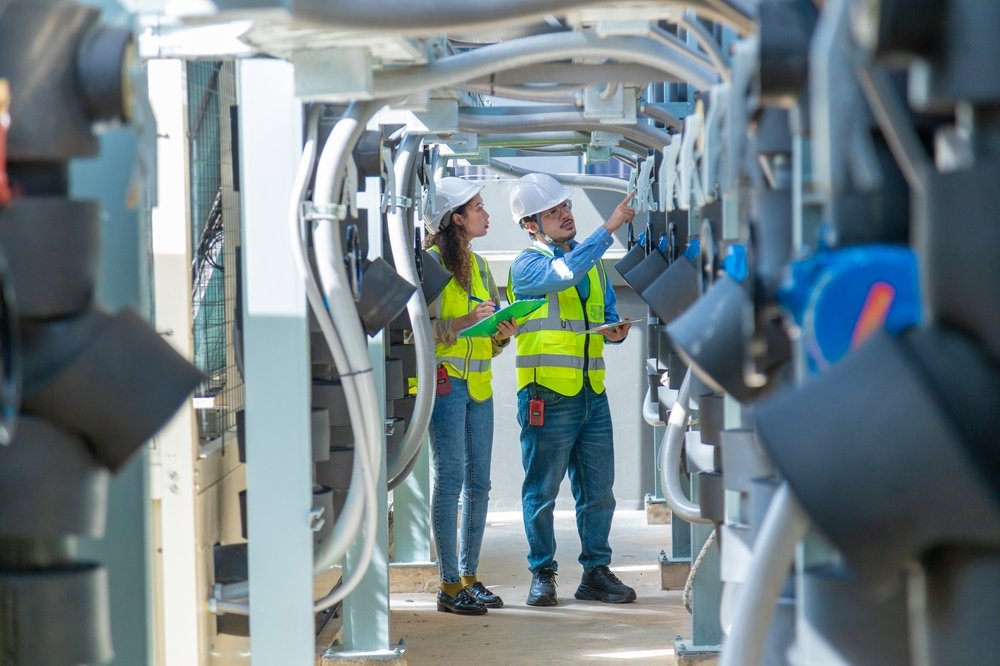Smart Water Management Is a Win-Win-Win
In an era marked by water scarcity and pollution, smart water management emerges as a crucial, multifaceted strategy. It promises significant benefits: reducing operational costs for businesses, enhancing community health, and ensuring the sustainability of water resources for future generations.
By leveraging advanced technology for real-time water monitoring and management, businesses across all sectors can address critical challenges while fueling their growth trajectory. Let’s take a closer look at how smart water management represents a holistic investment in our environmental, economic, and social well-being, offering a sustainable path forward in the face of global water challenges.
Fewer costs for business
Water scarcity poses a significant challenge for businesses worldwide, even in regions traditionally considered water-abundant. By 2030, the UN predicts the world will face a staggering 40% freshwater deficit if current water consumption rates persist. This scarcity impacts businesses across all sectors, driving up costs and threatening sustainability.
Smart water systems offer a pioneering solution to fine-tune water consumption throughout the entire value chain. By employing advanced technologies, these tools enable continuous oversight. Facility managers are able to monitor usage in real time, detect any anomalies, and predict water demand at every stage. The end results for businesses are enhanced resource allocation and operational efficiency.
The integrated sensors, predictive leakage detectors, and AI-assisted processes characterizing smart water systems can identify potential leaks before they escalate and result in costly damages. This minimizes water wastage and mitigates losses from downtime while decreasing the need for expensive repairs and water transportation.
Smart water management also plays a vital role in preventing the contamination of natural resources. By implementing rigorous monitoring and treatment measures, businesses can detect any deviations from water quality standards in real time, enabling prompt intervention to address potential sources of contamination. This ensures water facilities remain unpolluted in compliance with regulatory requirements, mitigating costly fines and penalties associated with environmental damages.
Better health for communities
Clean water is vital in every aspect of life, from drinking and cooking to bathing and hygiene. When faced with water shortages, communities often turn to untreated wastewater to meet necessities, increasing the risk of waterborne disease transmission. A single contamination event can rapidly escalate into a pandemic and present significant challenges for healthcare facilities, intensifying public health emergencies.
Smart water management presents a practical solution to these pressing issues. By continuously analyzing water quality parameters such as pH, turbidity, dissolved oxygen, and chemical contaminants, these advanced systems can detect and address potential pollutants putting public health at risk. At the same time, smart water systems can help identify sources of pollution, ensuring prompt intervention to prevent further environmental degradation.
In addition to monitoring, smart water management maintains strict quality control on wastewater by implementing effective treatment processes such as sedimentation, filtration, and chemical treatment to remove pathogens. These treatment methods ensure the discharged water meets regulatory standards, keeping water supplies safe for the environment and public use. This not only protects the health of communities but also lessens the burden on healthcare facilities by preventing outbreaks of water-related illnesses.
More resources for future generations
The importance of safeguarding water resources for future generations cannot be overstated. The decisions we make now will have lasting and compounding effects on future communities. Smart water management promotes water sustainability and stewardship today, tomorrow, and for years to come. It is a commitment to preserving precious water resources on a larger scale, offering numerous potential benefits and positive impacts for future generations:
The long-term equitability and availability of clean water can mitigate the risk of water scarcity and ensure access to essential resources.
Reduced pollution preserves ecosystems and protects natural habitats that depend on clean water for survival.
Economic prosperity from reduced operational costs can create a more resilient and sustainable economy.
Enhancing resilience to climate change helps future communities adapt to changing climate conditions while mitigating the impacts of droughts and floods.
Investing in smart water solutions spurs research and development for advanced sensors, analytics algorithms, and remote monitoring systems, which can continue to improve water management for the future.
Increased investment in smart water solutions also fosters partnerships and collaborations among industry stakeholders, research institutions, and government agencies. These partnerships facilitate knowledge-sharing, technology transfer, and collaborative research efforts.
Sustainable is smart: Lead the future of water management with Aquanomix
Smart water management crucially mitigates water scarcity and pollution challenges by enhancing operational efficiency, safeguarding public health, and ensuring resource sustainability for future generations. This realization is a vital call to action for stakeholders across all sectors to adopt and prioritize sustainable water management practices. By doing so, we contribute to the global effort toward environmental stewardship, economic resilience, and public health improvement.
Visit Aquanomix.com to transform your approach to water conservation, operational efficiency, and sustainability.



